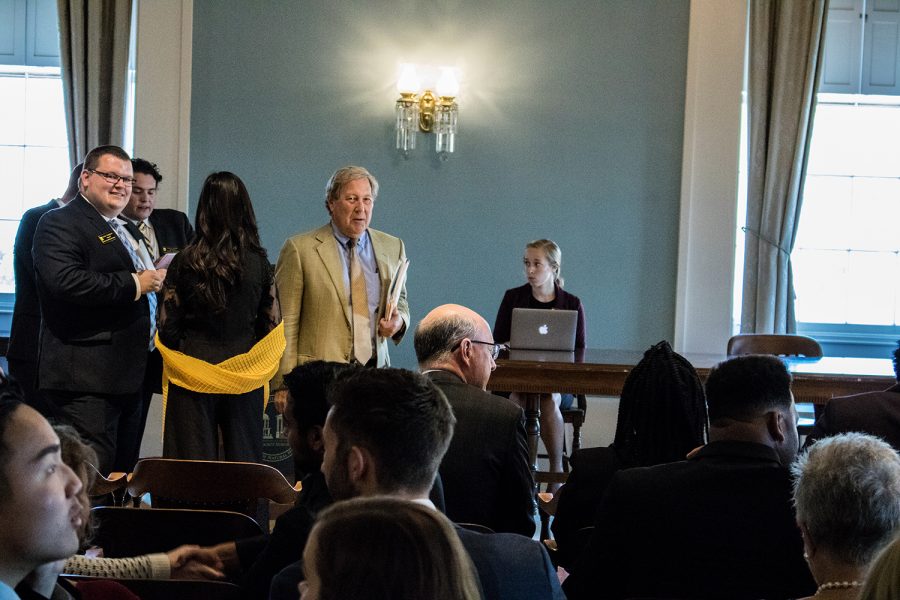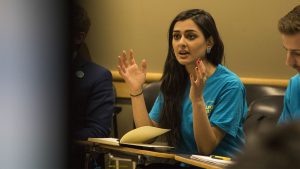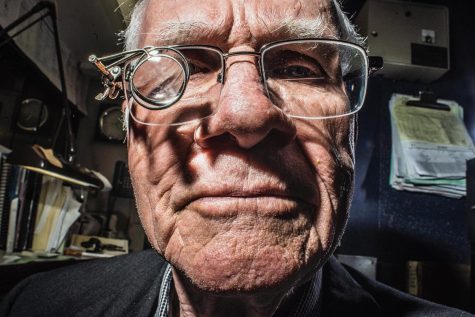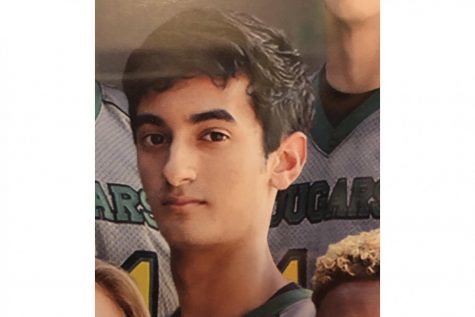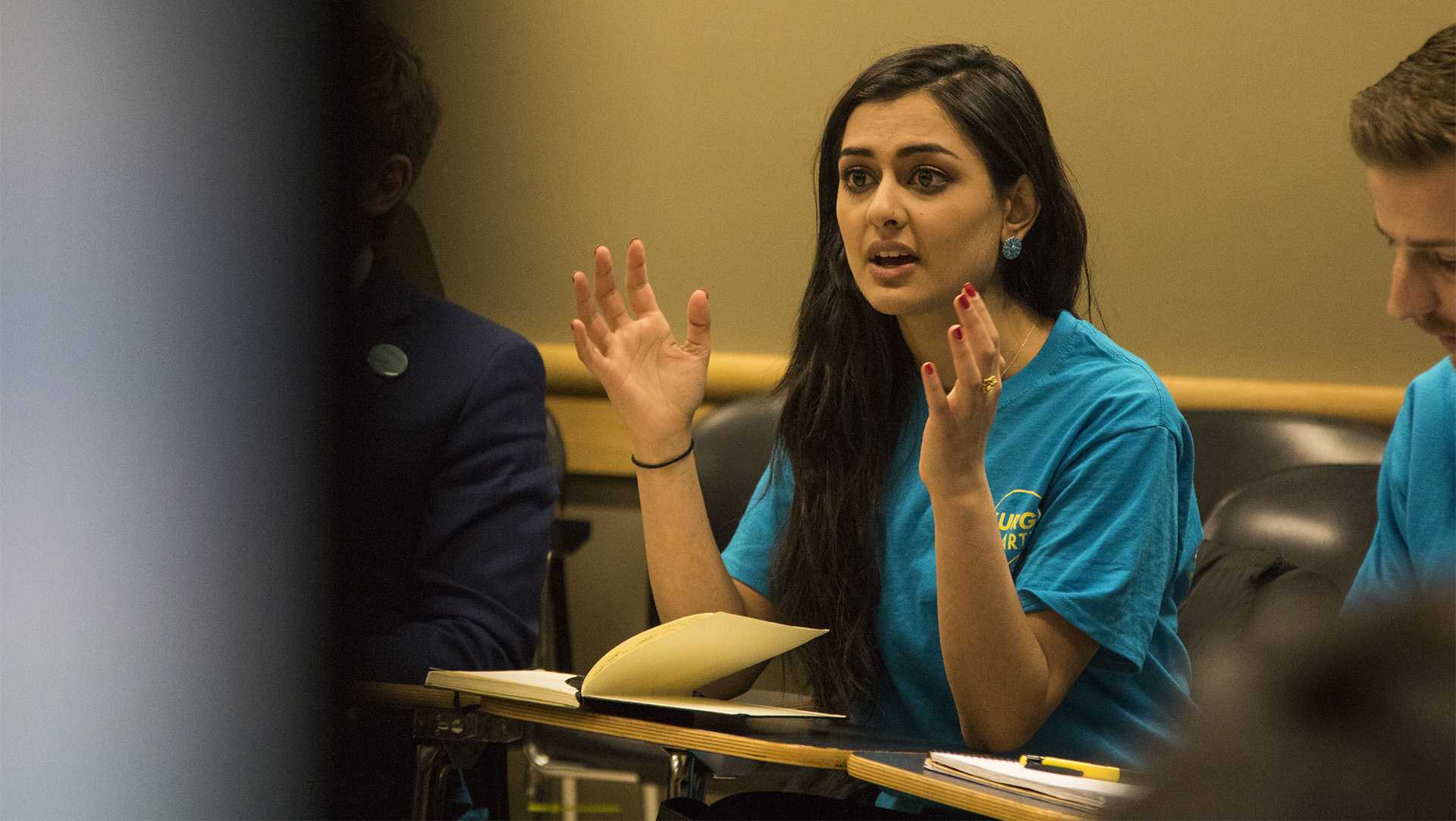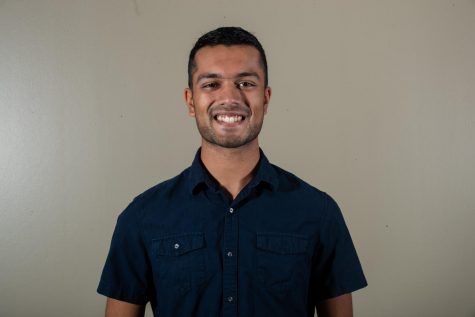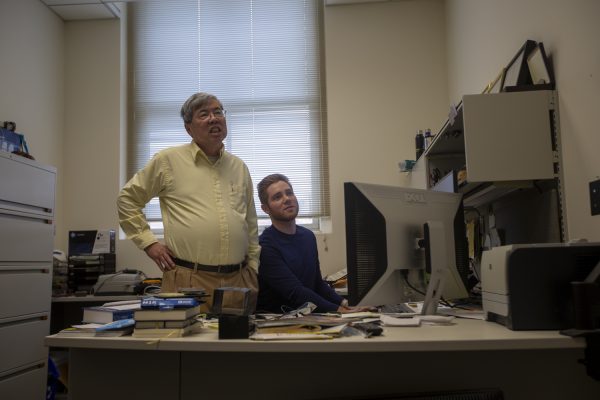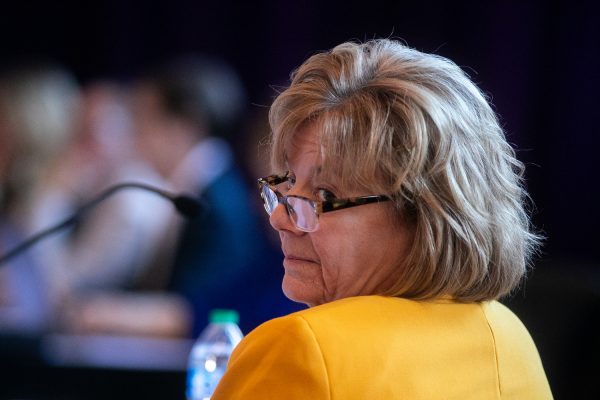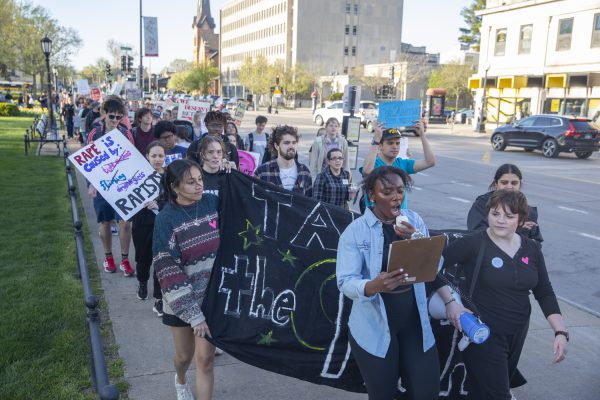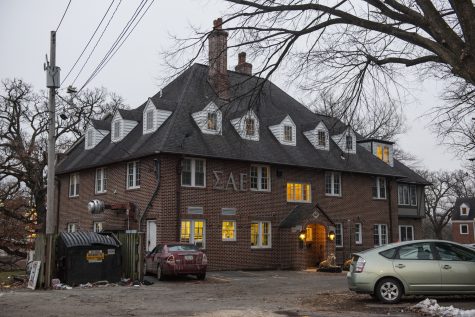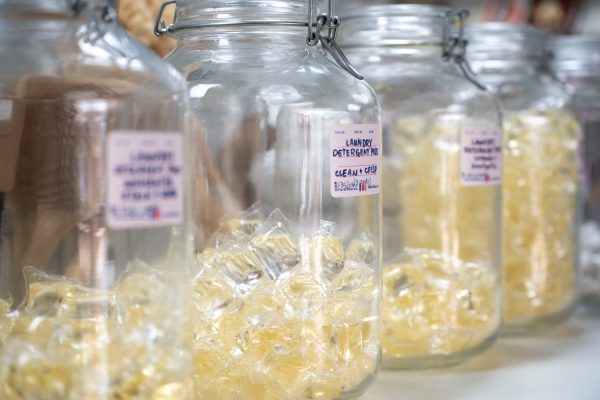GPSG works with state legislators to increase professional student retention
GPSG is working with state legislators to increase the number of graduate students who choose to start careers in Iowa through tax incentives and debt breaks.
Members of UISG and GPSG join for a meeting in the Old Capitol Senate Chamber on Tuesday, September 11, 2018. The annual meeting was initiated with a brief introduction by President Bruce Harreld. (Shivansh Ahuja/The Daily Iowan)
February 18, 2019
The University of Iowa’s Graduate & Professional Student Government is working on initiatives to retain more professional students in Iowa following graduation, because the state suffers from a lack of professionals, especially in health-care fields.
Seventy-two of Iowa’s 99 counties have been designated as medically underserved in primary care, dental care, and/or mental-health care, according to the U.S Department of Health and Human Services.
Hannah Walsh, a former GPSG governmental relations chair who was involved in developing the professional-student-retention initiative noted that a joint report from graduate student governments at all three regents’ schools demonstrated how many professional students plan to start careers in Iowa and offers possible solutions to increase retention.
“As graduate and professional debt levels continue to rise with decreased state investment, graduates seek jobs that will pay off their debt. While Iowa boasts a high-quality of life and low cost of living, we are a low-wage state,” Walsh said in an email to The Daily Iowan. “In other words, graduates are choosing to leave in favor of neighboring states, where they can start at higher levels of pay.”
GPSG President Dexter Golinghorst said the lack of professionals is being felt more acutely as Iowa’s population ages.
“It’s not necessarily a recent problem, but it’s becoming more expedited in the fact that Iowa’s population is growing older,” Golinghorst said. “The baby boomers are retiring, and we don’t necessarily have enough young people to replace them. As our doctors, dentists, and pharmacists are looking to retire, who are we getting to send into those practices and those communities?”
RELATED: Carver College of Medicine, UIHC aim to retain in-state students
According to a report from the graduate-student governments of the three regents’ universities, rural communities feel the shortages of trained professionals more so than urban areas; 47.6 percent of professional students are likely to remain in Iowa after graduation, but only 14.6 percent are likely to remain in the state outside of Iowa City, Cedar Rapids, or Des Moines.
GPSG representatives have worked with state legislators to implement incentives to motivate professional students to start their careers in Iowa.
“It’s a fairly bipartisan issue,” Golinghorst said. “Rural areas are some of the areas hit hardest by these shortages, so they have a real interest in figuring out how we can get [professional students] there.”
GPSG governmental-relations chair Rob Humble, who has worked to educate Iowa lawmakers on Maine’s “Opportunity Maine” program as a potential model for Iowa to emulate, said that program gives college-educated workers in the state a tax break in order to offset their debt payments. It also provides tax incentives to employers to make payments toward their employees’ student debt.
“They’ve seen success with that in terms of the number of people they’ve been able to retain, and that’s something we’re working to make legislators aware of here in Iowa,” Humble said. “To some extent, there are individuals who have heard of the program, but we’re happy to fill in the gaps wherever we can.”
The joint report from the regents’ universities suggests that Iowa offer a 50 percent income-tax break to professional students trained in Iowa for five years after graduation.
According to the report, 88 percent of “undecided” student respondents and 56 percent of respondents “unlikely” or “very-unlikely” would remain in Iowa for employment postgraduation would be incentivized to stay.
Along with monetary incentives, Golinghorst said, students need to be persuaded Iowa is a good place to start careers.
“You commonly hear that everyone is ‘Iowa Nice,’ and that’s great, but sometimes, if you’re not approaching students or planting the seed early about opportunities in the state, then they’re not going to think about staying here,” he said. “Just communicating why Iowa should be somewhere people should want to work and want to live is something we’re working on.”



